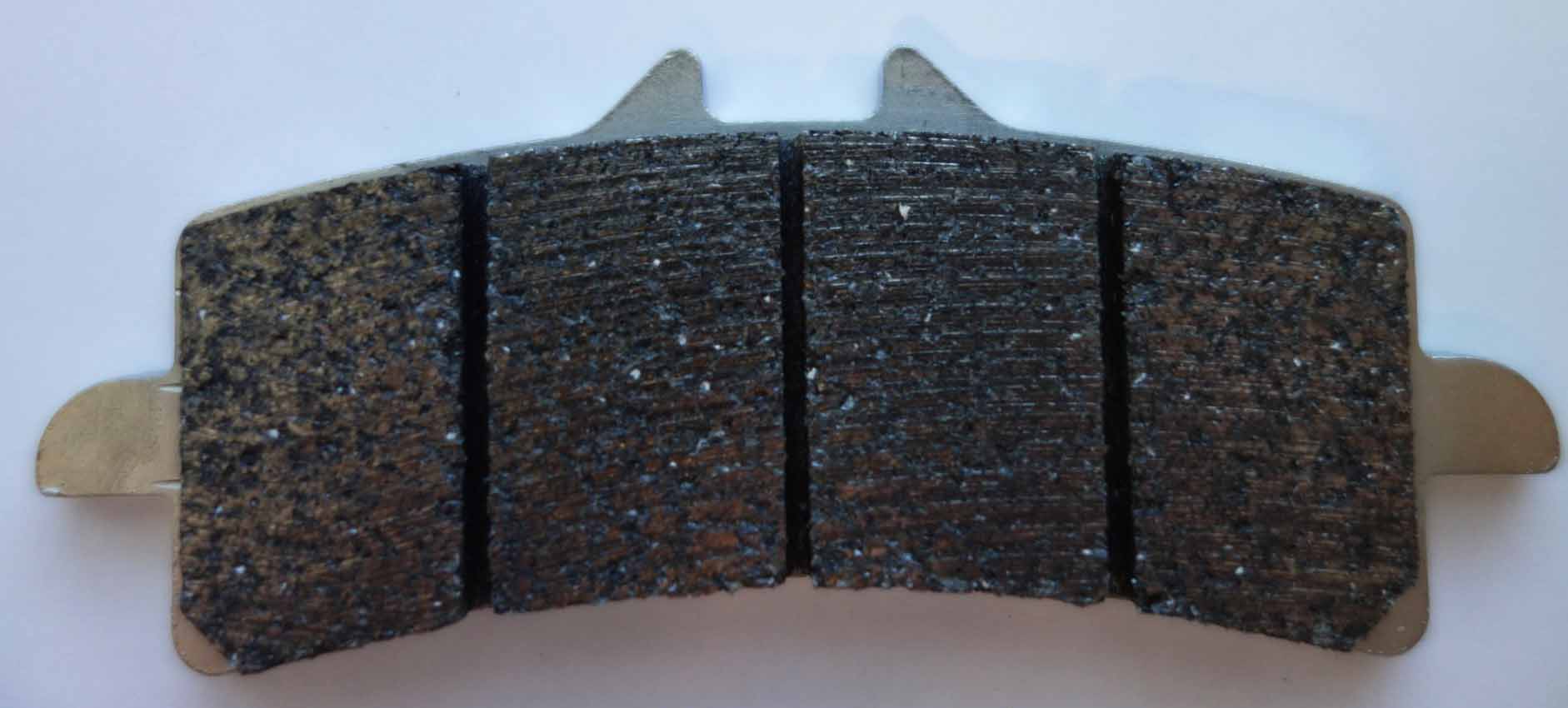Solution for clean mobility: Brake pads without copper or nickel
The Fraunhofer Institute for Manufacturing Technology and Advanced Materials IFAM in Dresden together with the Danish SBS Friction A/S as well as the Danish Technological Institute are developing an iron-based sintered brake pad for motorcycles. The project „GreenPad“, funded by the Innovation Fund Denmark, wants to create an environmentally friendly alternative to established surfacing materials.
The aim of this research project is to develop copper- and nickel-free sintered brake pads with tribological properties equivalent to those of conventional metallic brake pads. Initial tests have shown that the iron-based new developments are achieving promising results, which have been demonstrated both in the laboratory and in direct use in the motorcycle.
Sintered brake pads are far superior to organically bonded pads due to their high temperature resistance as well as their good properties with regard to wear, abrasion and coefficient of friction and are used for high-performance brakes, e.g. in rail transport or in motorcycles and bicycles.
So far, there are no environmentally friendly metallic alternatives. Nevertheless, there are clear commercial, economic and environmental reasons for abolishing the use of copper and nickel in production - driving forces that will become even stronger as stricter legislation is implemented.
Therefore, new solutions for metallic sintered brake pads are urgently needed. For environmental reasons especially, because currently brakes for high-performance applications are generally copper-based, although copper is considered highly toxic to aquatic species.
From 2021, for example, brake pads with a copper content of more than 5 percent will no longer be allowed to be sold in the US states of Washington and California. By 2025, brake pads there must be almost completely copper-free with a maximum of 0.5 percent.
Looking at the motorcycle market as a whole, the use of copper- and nickel-free products can potentially reduce copper emissions by 600 tons per year. This is equivalent to approximately 25 % of the emissions from copper brake wear throughout Europe. For nickel, the potential savings are 160 tonnes per year. These effects become even greater when additional target segments such as racing cars, scooters, high quality mountain bikes, ATVs and industrial machinery are taken into account.
Within the project "GreenPad", Fraunhofer IFAM Dresden is applying its many years of know-how to solve tribological material problems. In addition to tribological tests, material developments for all tribological applications and the optimization and design of friction pairings, tribological damage cases are also assessed at the institute. Customers have a high-performance tribometer at their disposal, with which both model and component tests are possible.
Last modified:
 Fraunhofer Institute for Manufacturing Technology and Advanced Materials IFAM
Fraunhofer Institute for Manufacturing Technology and Advanced Materials IFAM